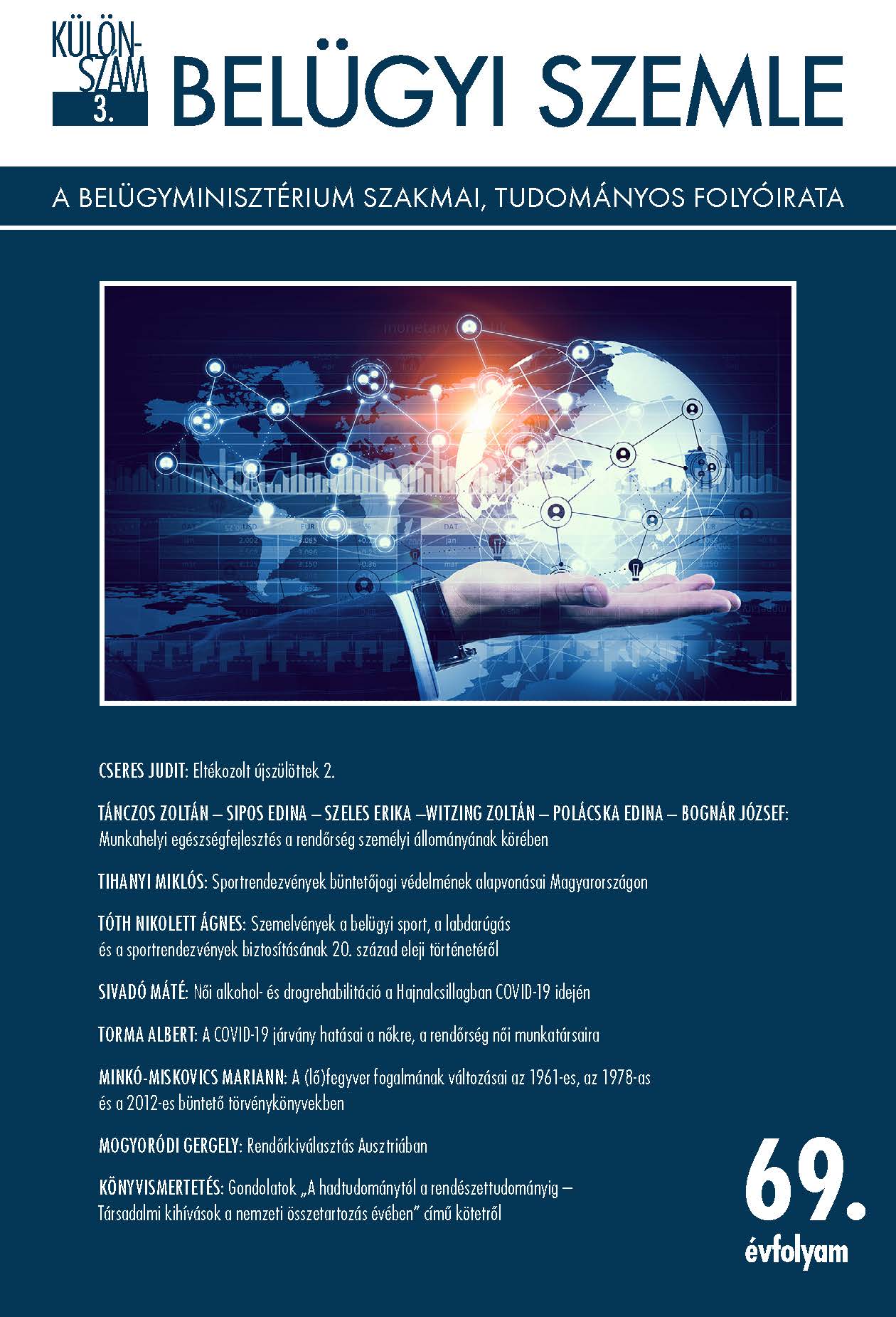Abstract
The security of sporting events is a social phenomenon that receives, due to the high level of publicity, both social and political attention. The security of sports events in Hungary is primarily a law enforcement issue, therefore it requires primarily law enforcement solutions. However, the cornerstone of legal protection is criminal law. On the one hand, it provides the legal basis for official action and, on the other hand, it serves as the ultima ratio for the safety of sporting events. This writing focuses on the process of domestic legislation and the reasons behind it. The focus of the investigations is on the facts that protect the safety of sporting events as a matter of law and on sanctions specifically aimed at the preventive effect of sporting events. By extending criminal law protection, it is also not possible to circumvent infringement of the law issues, as they are aimed at protecting the same subject matter. As a result of legal developments, all human behaviors that endanger or offend sports events, have become punishable to the best of our knowledge. The Hungarian legislature attaches importance to the extent to which an act affects the enjoyment value of peaceful spectators at a sporting event. Achieving the desired social results by a legal authority rests solely on the discretion of the event organizers and the authorities, i.e., on the effectiveness of law enforcement. Related to this is the special right of the organizers to apply exclusion. The organizer, as a private legal entity, is entitled to apply a measure which has the same effect as criminal or infringement sanctions. With this, the state essentially privatized its claim for criminal power in the field of stadiums, in the case of acts endangering the safety of sports.

